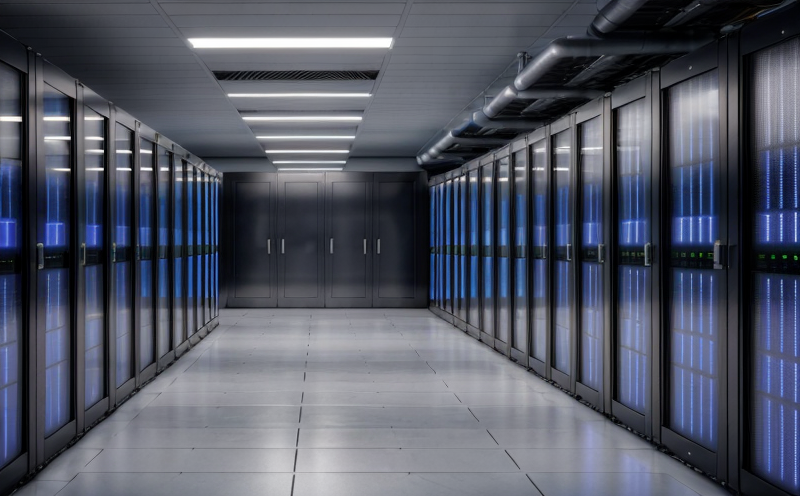Data center certification standards have become increasingly important for organizations seeking to ensure that their data centers are designed, built, and operated in a way that meets industry best practices and regulatory requirements. In this article, we will explore the various certification standards available for data centers, including the most widely recognized ones such as Tier Certification by Uptime Institute, LEED (Leadership in Energy and Environmental Design) certification, and ISO 27001 certification.
Data center certification is not just about meeting minimum compliance requirements; its also about demonstrating a commitment to efficiency, reliability, and sustainability. Certified data centers are more attractive to customers and investors, as they offer a competitive advantage in the market. Moreover, certification can lead to cost savings through improved energy efficiency and reduced maintenance costs.
There are several organizations that provide data center certification standards, including:
The Uptime Institute: This is one of the most widely recognized data center certification programs, which evaluates a facilitys design, build-out, and ongoing management practices against industry-recognized benchmarks. The Uptime Institute offers four tiers of certification, ranging from Tier I (basic capacity for IT equipment) to Tier IV (design for mission-critical operation with 99.999 uptime).
LEED (Leadership in Energy and Environmental Design): This is a well-established green building rating system that evaluates the environmental sustainability of a data centers design, construction, and operations.
ISO/IEC 27001: This is an international standard for information security management systems, which outlines best practices for managing sensitive information.
Lets take a closer look at LEED certification in bullet points:
Sustainable Site: A certified LEED facility minimizes its impact on the surrounding environment by reducing stormwater runoff, protecting natural habitats, and promoting biodiversity. This includes features such as:
Rainwater harvesting systems
Green roofs
Wildlife-friendly habitats
Water Efficiency: A LEED-certified data center reduces water consumption through efficient use of resources, including grey water reuse, rainwater collection, and optimized cooling systems.
Examples of energy-efficient technologies that may be used in a LEED-certified facility include:
High-efficiency chillers
Heat exchangers
Air-side free cooling
Now lets examine the Uptime Institutes Tier Certification program:
Tier I: Basic Capacity for IT Equipment: This tier is designed for non-critical operations and assumes that there will be some downtime or loss of capacity. Key characteristics include:
Single path for power delivery
Limited redundancy
Manual shutdown procedures
Examples of facilities that may achieve Tier I certification include:
Development environments
Test labs
Backup sites
Tier II: Redundant/Non-mission Critical Components: This tier provides some level of redundancy but still allows for planned downtime. Key characteristics include:
Multiple paths for power delivery
Some redundancy in cooling and electrical systems
Automated shutdown procedures
Examples of facilities that may achieve Tier II certification include:
Edge data centers
Small enterprise environments
Disaster recovery sites
Tier III: Continuity Operation (99.98 uptime): This tier provides for all mission-critical components to be dual-fed, and there is no single point of failure in the electrical or cooling systems.
Examples of facilities that may achieve Tier III certification include:
Large enterprise environments
Financial institutions
Cloud service providers
Tier IV: Mission-Critical Operation (99.999 uptime): This tier provides for all mission-critical components to be dual-fed, and there is no single point of failure in the electrical or cooling systems.
Examples of facilities that may achieve Tier IV certification include:
Hyperscale data centers
Large-scale cloud service providers
Financial institutions
QA Section:
What is the purpose of data center certification?
Data center certification is a voluntary process that ensures a facilitys design, build-out, and ongoing management practices meet industry-recognized benchmarks. Certification demonstrates a commitment to efficiency, reliability, and sustainability.
How long does it take to obtain data center certification?
The time it takes to obtain certification varies depending on the certification program and the complexity of the data center design. It can range from several weeks to several months or even years.
What are the benefits of data center certification?
Certified data centers enjoy a competitive advantage in the market, as they demonstrate a commitment to efficiency, reliability, and sustainability. Certification also leads to cost savings through improved energy efficiency and reduced maintenance costs.
Can I obtain multiple certifications for my data center?
Yes, it is possible to obtain multiple certifications for your data center. For example, you may choose to pursue both LEED certification and Tier Certification by Uptime Institute.
What are the differences between ISO/IEC 27001 and other certification programs like LEED or Tier Certification?
ISO/IEC 27001 focuses on information security management systems (ISMS), which outlines best practices for managing sensitive information. Other certification programs, such as LEED or Tier Certification, evaluate a facilitys design, build-out, and ongoing management practices against industry-recognized benchmarks.
How much does data center certification cost?
The cost of data center certification varies depending on the certification program and the complexity of the data center design. It can range from several thousand dollars to tens of thousands of dollars or more.
Do I need to hire a third-party assessor for my data center certification?
Yes, in most cases, you will need to hire a third-party assessor who is certified by the relevant certification organization to evaluate your facility against industry-recognized benchmarks. This ensures that the evaluation is unbiased and meets the required standards.
Can I obtain data center certification without investing in new infrastructure or technologies?
While its possible to improve your data centers efficiency, reliability, and sustainability through existing infrastructure and technologies, significant upgrades may be necessary for some certification programs, such as LEED or Tier Certification.

































